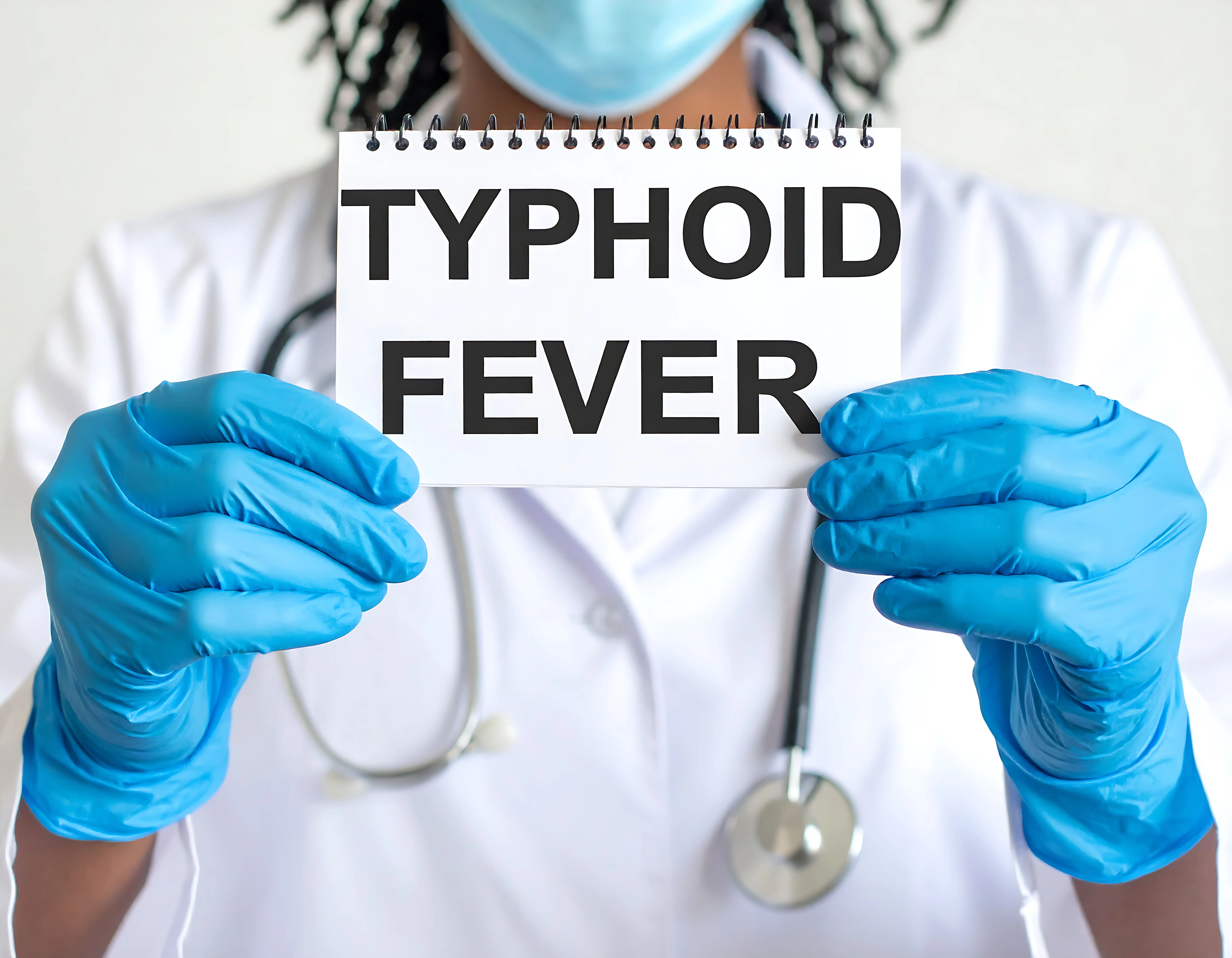Guide to Thyroid Function And Wellness
Learn how to support thyroid function and overall wellness with practical tips on diet, lifestyle, and healthy habits.

Written by Dr. Md Yusuf Shareef
Reviewed by Dr. Rohinipriyanka Pondugula MBBS
Last updated on 13th Jan, 2026

Introduction
Feeling constantly fatigued, struggling with unexpected weight changes, or battling brain fog? While these symptoms can stem from many sources, they are hallmark signs of a thyroid imbalance. This small, butterfly-shaped gland in your neck acts as your body's master regulator, influencing everything from your energy levels and metabolism to your mood and heart rate. Achieving optimal thyroid function is not just about avoiding disease; it's a cornerstone of vibrant wellness. This comprehensive guide demystifies the thyroid gland, explains common disorders like hypothyroidism and hyperthyroidism, and goes beyond standard advice to provide a holistic guide to thyroid function and wellness. We will explore how nutrition, stress management, and gut health play pivotal roles in supporting your thyroid, empowering you with practical strategies to take control of your health starting today.
Understanding Your Thyroid: The Body's Master Gland
Your thyroid plays a vital role in regulating metabolism, energy, and overall health.
What is the Thyroid and What Does It Do?
Your thyroid gland may be small, but its impact is enormous. Located just below your Adam's apple, it releases
hormones that travel through your bloodstream to nearly every cell in your body. Think of it as the thermostat for your metabolism; it sets the pace at which your body operates. Thyroid hormones, primarily Thyroxine (T4) and Triiodothyronine (T3), are responsible for regulating:
- Metabolic Rate: Controlling how quickly you burn calories.
- Body Temperature: Maintaining a stable internal temperature.
- Heart Rate: Influencing the speed and strength of your heartbeat.
- Brain Development and Function: Impacting concentration, memory, and mood.
- Growth and Repair: Supporting hair, skin, and nail health.
When your thyroid function is optimal, you feel energetic, maintain a healthy weight, and think clearly. When it's out of balance, it can disrupt these fundamental processes.
The Hormone Control Center: TSH, T4, and T3 Explained
The thyroid doesn't work alone; it's part of a delicate feedback loop called the Hypothalamic-Pituitary-Thyroid (HPT) axis.
- The Hypothalamus in your brain senses low thyroid hormone levels and releases TRH (Thyrotropin-Releasing Hormone).
- The Pituitary Gland (also in the brain) responds to TRH by releasing TSH (Thyroid-Stimulating Hormone).
- The Thyroid Gland is stimulated by TSH to produce T4 (the inactive storage hormone) and a small amount of T3 (the active hormone).
- T4 Conversion: T4 travels to organs like the liver and kidneys, where it is converted into the active T3 hormone that cells can use.
A high TSH level typically signals that the pituitary is "shouting" at a sluggish thyroid (hypothyroidism), while a low
TSH suggests the thyroid is overactive and the pituitary has stopped signaling (hyperthyroidism).
Consult an Endocrinologist for the best advice
Common Thyroid Disorders: When Things Go Awry
Thyroid problems can affect energy, metabolism, and overall well-being.
Hypothyroidism (Underactive Thyroid)
Hypothyroidism occurs when the thyroid gland doesn't produce enough hormones, slowing down the body's processes. It's one of the most common endocrine disorders, especially among women.
Key Symptoms of an Underactive Thyroid
- Persistent fatigue and lethargy
- Unexplained weight gain or difficulty losing weight
- Feeling cold all the time (cold intolerance)
- Brain fog, poor concentration, and memory issues
- Dry skin, thinning hair, and brittle nails
- Depression and low mood
- Constipation
- Muscle aches and stiffness
Primary Causes of Hypothyroidism
The leading cause of hypothyroidism in iodine-sufficient countries like the US and India is Hashimoto's thyroiditis, an autoimmune condition where the body's immune system mistakenly attacks the thyroid gland. Other causes include surgical removal of the thyroid, radiation treatment, certain medications, and iodine deficiency.
Hyperthyroidism (Overactive Thyroid)
Hyperthyroidism is the opposite condition, where the thyroid produces an excess of hormones, accelerating the body's functions.
Key Symptoms of an Overactive Thyroid
- Anxiety, nervousness, and irritability
- Unintentional weight loss despite increased appetite
- Rapid or irregular heartbeat (palpitations)
- Heat intolerance and excessive sweating
- Tremors in the hands
- Frequent bowel movements
- Enlarged thyroid gland (goitre)
Primary Causes of Hyperthyroidism
The most common cause is Graves' disease, another autoimmune disorder where antibodies mimic TSH, constantly stimulating the thyroid. Other causes include thyroid nodules that produce excess hormone (toxic nodules) and
inflammation of the thyroid (thyroiditis).
Getting a Proper Diagnosis: Tests and Talking to Your Doctor
Accurate diagnosis is the first step toward effective treatment and better health.
Essential Thyroid Function Tests
If you suspect a thyroid issue, a simple blood test is the first step. A comprehensive thyroid panel should include:
- TSH (Thyroid-Stimulating Hormone): The most sensitive screening marker.
- Free T4 (Thyroxine): Measures the inactive hormone produced by the thyroid.
- Free T3 (Triiodothyronine): Measures the active hormone available to cells.
- TPO Antibodies (Thyroid Peroxidase Antibodies): Detects the presence of autoimmune Hashimoto's.
- Tg Antibodies (Thyroglobulin Antibodies): Another marker for autoimmune activity.
A unique insight: Many standard panels only test TSH. However, a "normal" TSH doesn't always tell the whole story. Some individuals can have normal TSH but low T3, indicating a conversion problem. If your symptoms persist despite a "normal" TSH, discussing a full panel with your doctor is crucial.
Interpreting Your Thyroid Panel Results
Understanding your results empowers you to have a more informed conversation with your doctor. Generally:
- High TSH + Low Free T4 = Primary Hypothyroidism.
- High TPO Antibodies = Hashimoto's Disease.
- Low TSH + High Free T4/T3 = Hyperthyroidism.
It's essential to review these results in the context of your symptoms, as lab reference ranges can be broad.
Get Your Health Assessed
A Holistic Approach to Thyroid Wellness: Beyond Medication
For diagnosed disorders, medication like levothyroxine is essential and life-saving. However, wellness involves proactive lifestyle choices that support your thyroid and overall health.
Nutrition for Thyroid Health: Fueling Your Gland
A best diet for hypothyroidism is rich in whole, nutrient-dense foods that provide the building blocks for hormone production.
Essential Nutrients: Iodine, Selenium, and Zinc
- Iodine: Fundamental for making T4 and T3. Sources: Iodised salt, seaweed, fish, dairy. (Caution: Excessive iodine can worsen autoimmune thyroid disease).
- Selenium: Crucial for converting T4 to the active T3 and protecting the thyroid from oxidative stress. Sources: Brazil nuts (just 2-3 per day), tuna, sardines, eggs.
- Zinc: Works with selenium to support T3 production. Sources: oysters, beef, pumpkin seeds, lentils.
The Goitrogen Debate: Should You Avoid Certain Vegetables?
Goitrogens (found in cruciferous vegetables like broccoli, cauliflower, and cabbage, and in soy) can interfere with
iodine uptake in large amounts. However, for most people with adequate iodine intake, cooking these vegetables
neutralises most goitrogenic compounds. They are incredibly nutritious and should not be avoided unless advised by your doctor. The benefits far outweigh the risks.
The Gut-Thyroid Connection: Why Digestive Health Matters
This is a critical and often overlooked aspect. About 20% of T4 is converted to T3 in the gut. An unhealthy gut
microbiome can impair this conversion. Furthermore, leaky gut (intestinal permeability) is linked to the development of autoimmune diseases like Hashimoto's. Supporting gut health with probiotic-rich foods (yogurt, kefir, kimchi) and fibre is a powerful way to support thyroid function.
Stress Management and Thyroid Function
Chronic stress elevates cortisol, which can disrupt the HPT axis, leading to reduced TSH production and impaired T4-to-T3 conversion (favoring reverse T3, an inactive form). This is a key reason stress can cause thyroid problems. Incorporating stress-reduction techniques like yoga, meditation, deep breathing, or regular moderate exercise is non-negotiable for thyroid wellness.
The Impact of Sleep and Environmental Toxins
Poor sleep further dysregulates cortisol and hampers recovery. Aim for 7-9 hours of quality sleep per night.
Additionally, environmental toxins like BPA, phthalates (found in plastics), and pesticides can act as endocrine
disruptors. Opt for glass or stainless-steel containers, choose organic produce when possible, and use natural cleaning products to reduce your toxic burden.
Conclusion: Empowering Your Thyroid Health Journey
Understanding your thyroid is the first step toward taking control of your metabolic health and overall wellness. While thyroid disorders are common, they are manageable. By combining modern medical diagnosis and treatment with a holistic approach that encompasses targeted nutrition, stress management, and gut health, you can support your thyroid function effectively. Remember, you are the most important advocate for your health. Pay attention to your body's signals, seek knowledgeable medical guidance, and embrace lifestyle choices that nourish your entire system. Your journey to balanced hormones and renewed vitality starts with informed, proactive steps today.
Consult an Endocrinologist for the best advice
Consult an Endocrinologist for the best advice

Dr. Anand Ravi
General Physician
2 Years • MBBS
Bengaluru
PRESTIGE SHANTHINIKETAN - SOCIETY CLINIC, Bengaluru

Dr. E Prabhakar Sastry
General Physician/ Internal Medicine Specialist
40 Years • MD(Internal Medicine)
Manikonda Jagir
Apollo Clinic, Manikonda, Manikonda Jagir
(175+ Patients)
Aditya Singh
Endocrinologist
8 Years • MBBS
Bengaluru
Apollo One Electronic City, Bengaluru

Dr. Shruthi B
Endocrinologist
20 Years • MBBS,MD ( GEN MED) DM (ENDOCRIONOLOGY)
Bengaluru
Apollo Clinic, JP nagar, Bengaluru

Dr. Arunava Ghosh
General Physician/ Internal Medicine Specialist
10 Years • MBBS,MD(GENL.MED.),DM(ENDOCRINOLOGY)
Kolkata
VDC Clinic, Kolkata
Consult an Endocrinologist for the best advice

Dr. Anand Ravi
General Physician
2 Years • MBBS
Bengaluru
PRESTIGE SHANTHINIKETAN - SOCIETY CLINIC, Bengaluru

Dr. E Prabhakar Sastry
General Physician/ Internal Medicine Specialist
40 Years • MD(Internal Medicine)
Manikonda Jagir
Apollo Clinic, Manikonda, Manikonda Jagir
(175+ Patients)
Aditya Singh
Endocrinologist
8 Years • MBBS
Bengaluru
Apollo One Electronic City, Bengaluru

Dr. Shruthi B
Endocrinologist
20 Years • MBBS,MD ( GEN MED) DM (ENDOCRIONOLOGY)
Bengaluru
Apollo Clinic, JP nagar, Bengaluru

Dr. Arunava Ghosh
General Physician/ Internal Medicine Specialist
10 Years • MBBS,MD(GENL.MED.),DM(ENDOCRINOLOGY)
Kolkata
VDC Clinic, Kolkata
More articles from Thyroid
Frequently Asked Questions
1. Can I manage my hypothyroidism with diet alone?
While a healthy diet is crucial for supporting thyroid function, it cannot replace medication if your thyroid is unable to produce sufficient hormones on its own. Medication like levothyroxine provides the hormones your body needs. Think of diet and lifestyle as essential supportive tools that help your medication work better and improve your overall wellness.
2. What is the difference between Hashimoto's and standard hypothyroidism?
Hashimoto's is the most common cause of hypothyroidism. It is an autoimmune disease where the immune system attacks the thyroid, eventually leading to an underactive gland. 'Hypothyroidism' is the general term for an underactive thyroid, which can be caused by Hashimoto's or other factors like surgery.
3. Are there specific exercises better for thyroid health?
Moderate, regular exercise is beneficial as it helps reduce stress and support metabolism. However, if you have untreated or severe hypothyroidism, intense exercise can be counterproductive. A mix of cardiovascular exercise (like brisk walking, cycling), strength training (to build metabolically active muscle), and stress-reducing activities like yoga is often ideal.
4. How often should I get my thyroid levels checked?
If you are on thyroid medication, your doctor will typically recommend testing every 6-12 months once your levels are stable. If your dosage is being adjusted or you are newly diagnosed, testing may be more frequent (e.g., every 6-8 weeks). Apollo24|7 offers a convenient home collection for tests like thyroid panels.
5. Is it possible to have thyroid symptoms with normal lab results?
Yes, this is a common experience, sometimes referred to as 'subclinical' hypothyroidism. It can also be due to other factors like nutrient deficiencies, adrenal fatigue, or other health issues. It's important to work with a doctor who will consider your symptoms alongside your lab results.




